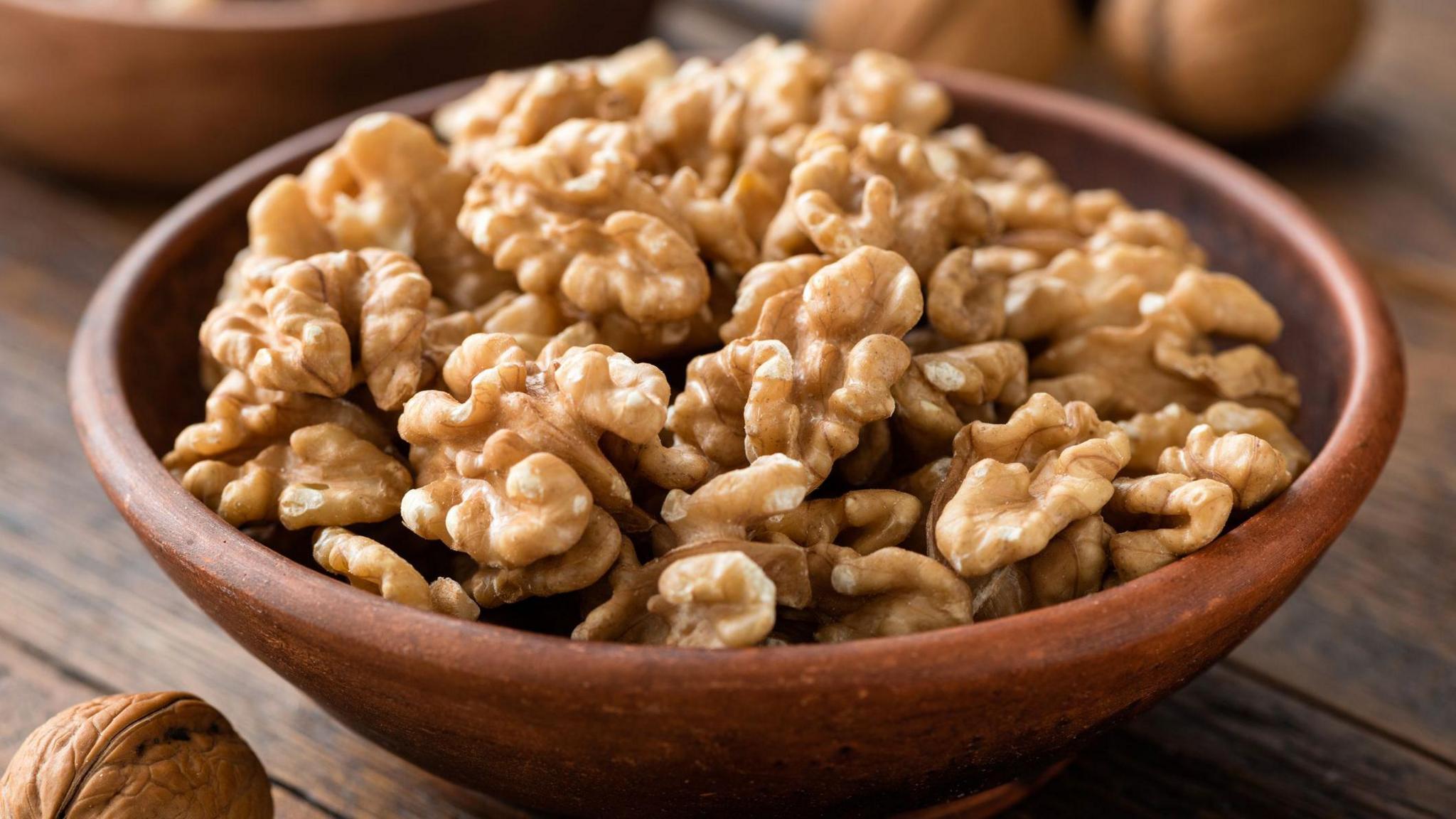Eating walnuts could make your memory better - study

Some of the participants in the study were asked to eat 50g of walnuts a day
- Published
If you're feeling a bit sluggish then have you thought about eating walnuts for breakfast?
A Hampshire academic designed the testing procedure for a study in which adults were asked to eat a walnut-rich breakfast or a calorie-matched meal.
Psychology lecturer Dr Adrian Whyte, who worked at the University of Reading when he did the work, contributed to the study which found 50g of walnuts mixed into muesli and yoghurt led to fast reaction times and better memory than the alternative.
Prof Claire Williams, from the University of Reading, who led the research, said it "helps strengthen the case for walnuts as brain food."

Dr Adrian Whyte now works at the University of Winchester
The study, published in the Food & Function journal, used 32 adults between 18 and 30 who were tested four times a day over the course of the work.
They were asked to wear an EEG (electroencephalogram) cap fitted with electrodes to measure brain activity and were tested before breakfast and then two, four and six hours afterwards.
Dr Whyte, who now works at the University of Winchester, said walnuts offer a rare combination of chemicals to help boost brain function.
They contain Omega 3 fatty acids and carry protein/peptides and flavonoids, which are known to boost memory and cognitive function.
"Other foods, notably fruits like blueberries, contain flavonoids but the particular array of chemicals in walnuts may work in a particularly synergistic fashion whereby the protein/peptides regulate the absorption of the Omega 3s which, in turn, regulate the absorption of the flavonoids," said Dr Whyte.
He's now studying the effect of cocoa on memory performance.
Get in touch
Do you have a story BBC Berkshire should cover?
You can follow BBC Berkshire on Facebook, external, X (Twitter), external, or Instagram, external.
- Published28 March 2011